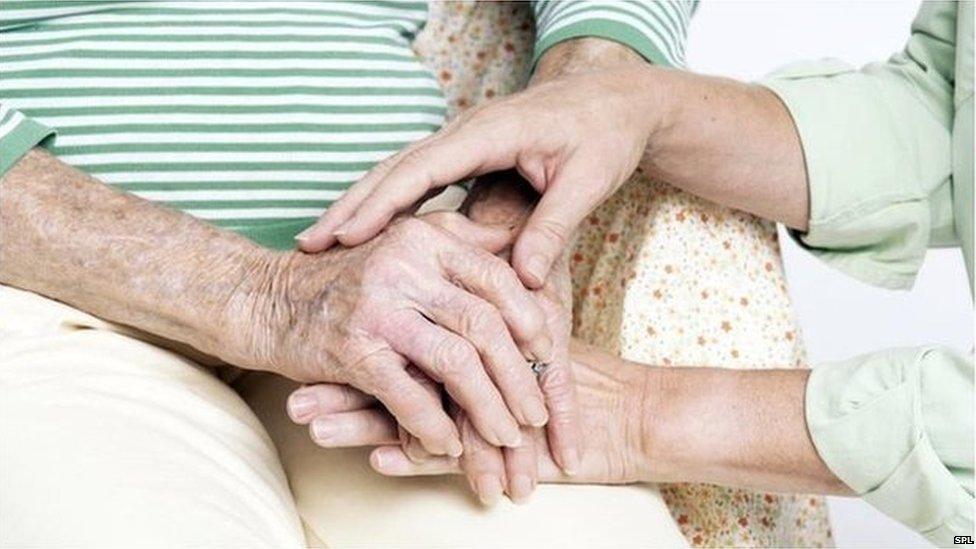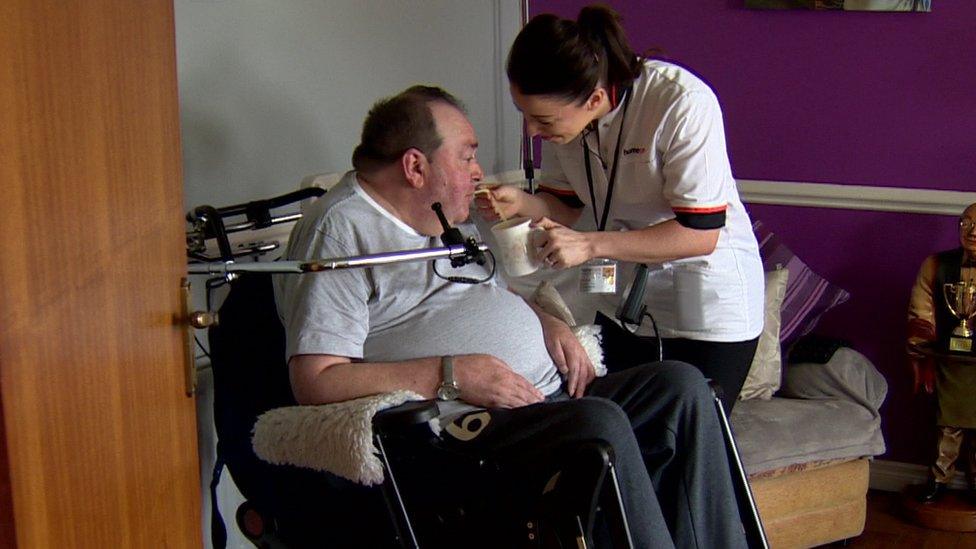Independent providers issue a stark warning on the cost of home care
- Published

Northern Ireland's independent health care providers are warning that it is becoming increasingly difficult to provide home care packages to the sick and elderly.
The problem has worsened since the introduction of the national living wage on 1 April.
The majority of care packages in Northern Ireland are administered by about 233 independent care companies.
They deliver about 170,000 hours of domiciliary care each week.
This amounts to 70% of the total - the rest is provided "in-house" by the five health trusts.
In a stark warning, the chief executive of the Independent Health and Care Providers, Pauline Shepherd, said rising costs, including the national living wage, means some companies are struggling to stay afloat.
"We need to recruit good people into it and we need to retain those people and at the minute it's not really an attractive area to work in," she said.
The trusts pay the independent care providers on average of £12 per hour.
From that, providers pay wages and other costs such as national insurance, pension contributions and petrol allowance.
'Not nearly enough'
On 1 April, the introduction of the national living wage meant the minimum wage for workers over age 25 rose from £6.70 an hour to £7.20 an hour.
Since the National Living Wage was introduced on 1 April, each of the five trusts has given a 5-6% increase to address additional costs.
But according to Pauline Shepherd that is not nearly enough.
"We've got a growing need for home care packages and the provision of care in people's homes is going to increase significantly, yet we can only seem to be able to pay the lowest salaries," she said.
The BBC can reveal that each health trust operates differently with some paying more than others.
That means a health trust may be able to pay for more hours in one area compared to another.
The uplift to the 2016/17 domiciliary care rate within the northern, southern and south eastern trusts has been confirmed at 5%.
In the South Eastern Trust that means the standard rate has increased from £12.16 to £12.77.
'Not an issue'
In rural areas, the rate has gone from £12.52 to £13.15.
In a statement, the Western Health Trust refused to give the BBC details of payments, instead it said it already exceeded the national living wage so therefore it was not an issue.
All of the other trusts have an average uplift of between 5% and 6%.
According to Adrian Norton, chief operating officer of Homecare Independent Living, his company is finding it difficult to make the current funding stretch across its current contracts.
"It's really difficult. We want to attract the best to this profession. If Northern Ireland is to care for more people at home it needs to increase the workforce and provide jobs that are secure and stable.
"But the current funding means we can't do that," he said.
Operating at a loss
From the £12 per hour paid by the trusts it has to cover four 15-minute calls to clients.
That amounts to about £3 per call, and from this providers also have to pay staff the national living wage, national insurance, pension and travel costs.
Providers say many of them are operating at a loss.
About 11,000 people work in the care industry. In February, the Department of Health gave the sector an additional £1.6m to cover costs, but that was a one-off payment.
- Published13 April 2016
